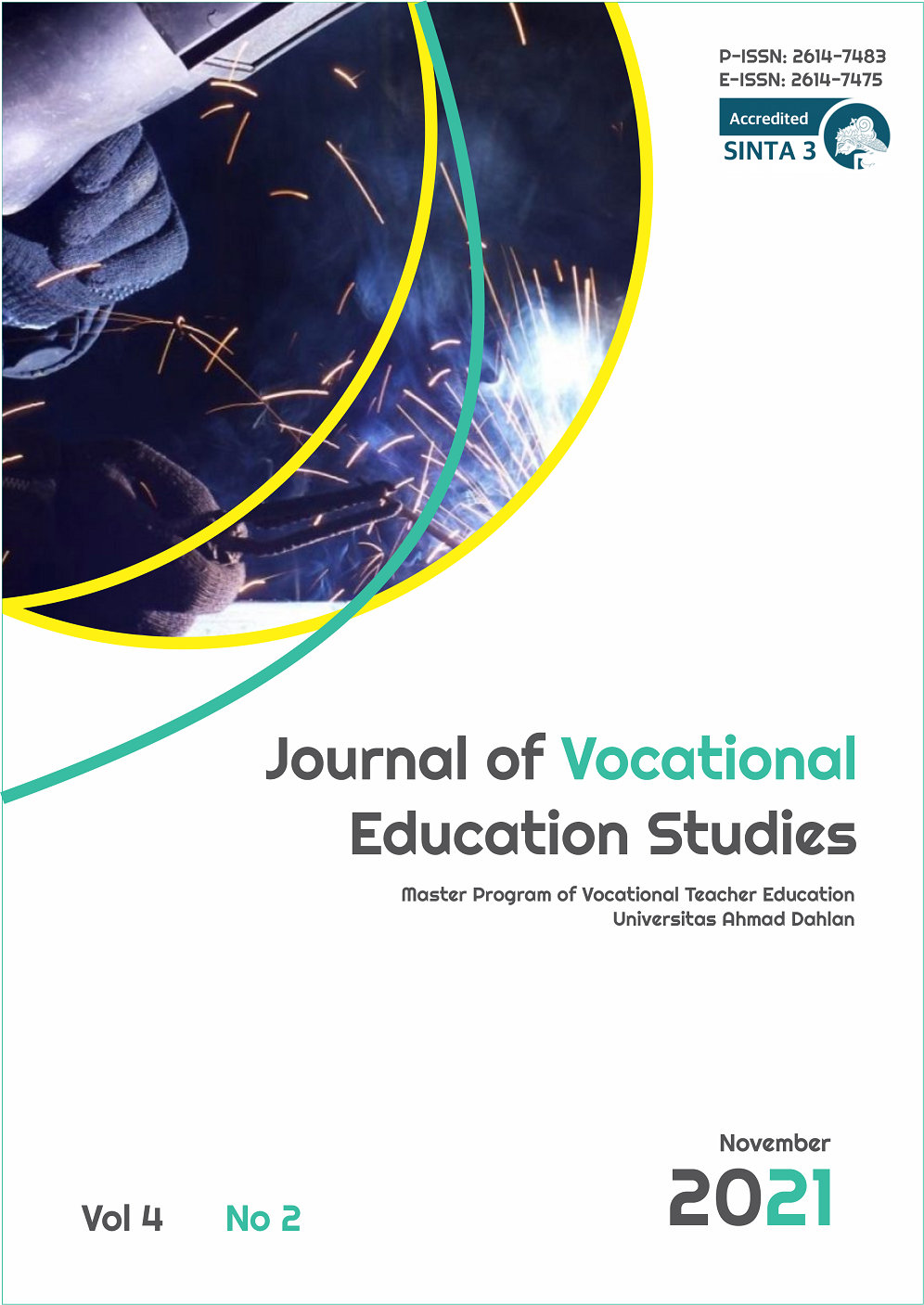The Strategy to Implement Work-Based Learning through Field Work Practices in Vocational High Schools (Multiple Case Studies in Malang Regency and Blitar City)
DOI:
https://doi.org/10.12928/joves.v4i2.4792Keywords:
Journal of Vocational Education Studies, JOVES, vocational education, vocational studies, graduate labour market, teaching, learning, vocational, education, pendidikan,Abstract
This study aims to identify and describe the strategy for implementing work-based learning through fieldwork practices in vocational high schools which include (1) WBL-FWP implementation strategy planning; (2) WBL-FWP implementation strategy; (3) Evaluation of the WBL-FWP implementation strategy; (4) Supporting and inhibiting factors for WBL-FWP Implementation, and (5) Impact on WBL-FWP implementation. This study uses a qualitative approach and the type of research is Multi Cases, the research was conducted at VHS Turen and VHS Islam 1 Blitar. Sources of data were obtained from the principal, vice-principal for public relations, the Chair of the WBL-FWP Working Group, the WBL-FWP Supervisor, and the WBL-FWP Instructor. Collecting data using free and in-depth interviews, study documentation, and observation. The findings show that: (1) WBL-FWP implementation strategy planning is carried out by MoU with linear industry, WBL-FWP supporting industrial practice equipment, and student preparation with WBL-FWP program socialization and debriefing; (2) The WBL-FWP implementation strategy is carried out structurally, the WBL-FWP is implemented for 6 months and there is a pick-up after students complete the WBL-FWP; (3) Evaluation of the WBL-FWP implementation strategy includes the assessment of industrial work results and the assessment of supervisors; (4) The supporting and implementing factors of WBL-FWP are the enthusiasm and full support of all school residents and the limitations of the industry as the location of WBL-FWP, the presence of students to improve products, teachers gain experience and apply learning in schools, and students gain competence in industry; (5) The impact of the existence of WBL-FWP is that the name of VHS will be better known, and students will also gain knowledge outside and know more about how to communicate, socialize with those around them.
Downloads
Published
Issue
Section
License
Copyright (c) 2021 Universitas Ahmad Dahlan

This work is licensed under a Creative Commons Attribution-ShareAlike 4.0 International License.
Authors who publish with Journal of Vocational Education Studies (JOVES) agree to the following terms: Authors retain the copyright and grant the Universitas Ahmad Dahlan right of first publication with the work simultaneously licensed under a Creative Commons Attribution License (CC BY-SA 4.0) that allows others to share (copy and redistribute the material in any medium or format) and adapt (remix, transform, and build upon the material) the work for any purpose, even commercially with an acknowledgement of the work's authorship and initial publication in Universitas Ahmad Dahlan. Authors are able to enter into separate, additional contractual arrangements for the non-exclusive distribution of the journal's published version of the work (e.g., post it to an institutional repository or publish it in a book), with an acknowledgement of its initial publication in Universitas Ahmad Dahlan. Authors are permitted and encouraged to post their work online (e.g., in institutional repositories or on their website) prior to and during the submission process, as it can lead to productive exchanges, as well as earlier and greater citation of published work (See The Effect of Open Access).










.png)



